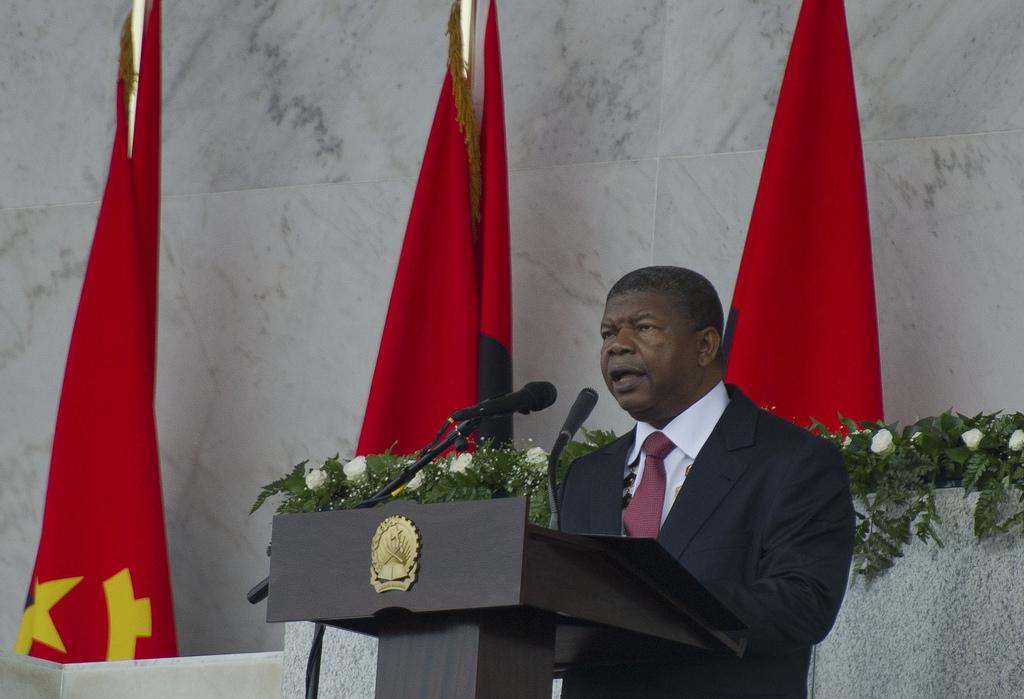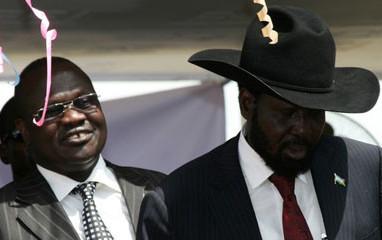No puppet: President Lourenço stamps his authority on Angola

Two months into office, Dos Santos’ handpicked successor is systematically removing the former president’s children from state power.

João Lourenço became president in September 2017. Credit: GCIS.
On 15 November, as most of southern Africa’s attentions turned to the military takeover ensuing in Zimbabwe, Angola’s President João Lourenço took a set of dramatic steps.
Acting with lightning speed, he fired the entire board of Angola’s state oil company Sonangol, including its chair Isabel dos Santos. Later that day, he rescinded the affiliation of brothers Welwistchea and José Paulino with the television networks Channel 2 and TPA International respectively. And this was immediately followed by the resignation of José Filomeno, who had already been effectively side-lined earlier this month, from his position as manager of Angola’s $5 billion sovereign wealth fund.
The billionaire daughter Isabel, often reported to be Africa’s wealthiest woman, and her lesser known brothers are all the children of Jose Eduardo dos Santos. The totemic former president stepped down from office just this August after a long 38 years in power.
A sequence of events such as this would ordinarily have dominated the southern African news headlines for the rest of the week. But dramatic events in Zimbabwe seemingly relegated Isabel and her brothers’ exits to what seemed a dull sideshow. This could not be further from the truth. Lourenço’s severing of the powerful dos Santos family’s ties to state power marks a momentous and intriguing development in Angola’s political course.
[Angola’s ruling family is worth billions. What happens when dad steps down?]
Breaking the chains
When Lourenço was chosen by then President Dos Santos to be his successor, it was broadly assumed he would be a loyal puppet. A military general and defence minister, Lourenço was perceived to represent continuity in the Movimento Popular de Libertação de Angola (MPLA)’s tight knit one-party state. Despite the pressing need for economic reform, it was assumed that any change in the ranks would be undertaken slowly so as to avoid upsetting the dos Santos affiliates’ delicate web of economic assets, consolidated during the oil boom that followed the end of Angola’s civil war in 2002.
Yet two months into his reign, J-Lo – as he is sometimes referred to in a joking reference to the pop star – has caught almost everyone around him flat-footed. Former president Dos Santos was said to be off grid, undergoing medical treatment in Spain, at the time of his children’s sackings. Meanwhile, barely a month ago, Isabel had been celebrating the “alignment” in her relationship with the new president.
In fact, since coming to power, Lourenço has fired at least 60 government officials. This includes the heads of the state diamond mining firms Endiama and Sodiam. It also includes the chiefs of the intelligence service and police, the latter of which had been supposedly “locked in” by parliament under his predecessor’s tenure. In their places, he has typically elevated younger officials, such as the new central bank governor. At the time of writing, there is talk of him replacing more.
Why Sonangol matters
At a recent cross-stakeholder 30-day review of the oil sector overseen by Carlos Saturnino, the new chair of Sonangol, Isabel dos Santos was accused of failing to instigate meaningful change at the parastatal. This accusation allows Lourenço to frame her dismissal on technocratic grounds. However, the concurrent takedown of her brothers suggests the new president is in fact concertedly dismantling his predecessor’s ties to power.
Lourenço’s dismissals in the oil sector, however, are particularly crucial. The resource accounts for 45% of the country’s GDP, 75% of government revenues, and 98% of foreign exchange income. It is the cornerstone of the country’s international strategic importance.
Reforming this important sector would always have to begin with Sonangol. The parastatal is the government’s foremost asset, a sprawling behemoth that administers Angola’s huge offshore petroleum industry.
In Dos Santos’ later years, low international oil prices along with administrative and compliance problems wore the body down. This led him, in June 2016, to turn to his own daughter to reform it. This was a controversial decision, drawing accusations of nepotism and a legal examination from the Supreme Court.
Isabel’s retention following her father’s exit was perceived as a worrying indication that vested interests around the former president would continue to stymie economic reform. But by firing her, Lourenço has slashed a major string that his predecessor had attached to the government’s economic portfolio, one that could have restricted his ability to govern with the necessary economic independence.
Why J-Lo is now his own man
In a since deleted Facebook post a day after her sacking, Isabel dos Santos appeared to react with indignation. In the post, she quoted an official who warned that J-Lo would have to face up to the party for his deviant behaviour. This will certainly be the case, but it too early to say how Lourenço’s audacious stamp of authority will be digested by the secretive organs of the MPLA, which is still presided over by dos Santos.
On one hand, the party has sought to handle the succession issue with the utmost care for stability and may balk at such a heavy-handed challenge to their symbolic ex-leader. On the other hand, it is possible that the party will fall in line with Lourenço, who has made little secret of his reformist agenda since coming to power.
In the August elections, the MPLA garnered 64.57%, a disappointing result by its standards. The party knows that removing the dos Santos children from power will bring cosmetic benefits in this regard. Domestically, it furnishes J-Lo with much-needed populist credentials. Internationally, it signals to foreign stakeholders that cronyism may be ending.
The removals also have a more substantive effect though. Gaining control over Sonangol gives the new president greater purchase in negotiating with international partners. He needs these foreign relationships to reboot the economy, including China for demand and financial support, and the US for strategic assistance and legitimacy.
What next?
Since the end of the civil war, the MPLA has relied heavily its oil revenue to govern and maintain control. Although the resource remains vital, indications are that J-Lo aims to diversify the economy, breaking up corrupt state-run monopolies in the process.
The sackings appear to be a calculated step in this process. However, in the longer term, Angola’s new president may go further in devolving political power from an overstretched and overexposed central government by empowering local municipalities. This could be a cynical attempt at self-preservation – by devolving responsibility down the chain, he can immunise the upper echelons of state power from public scrutiny – or it could be a veritable attempt to improve accountability.
In any case, whether or not he succeeds, removing his predecessor’s hold on power has earned J-Lo the credit of being his own man for now.
As for the dos Santos kids, they may now be out of the spotlight, but thanks to their father’s near four-decades in power, they still hold onto extensive economic interests, both in Angola and abroad.




